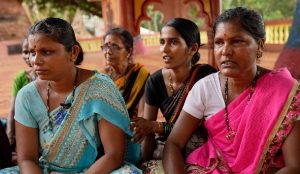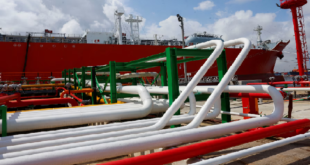17-06-2023
Bureau Report
NEW DELHI: “We don’t want this chemical refinery. We will not allow dirty oil from an Arab country to destroy our pristine environment,” says Manasi Bole.
 She is among thousands of people protesting plans to acquire an expansive laterite plateau flanked by Cliffside fishing villages, mango orchards and ancient petroglyphs to build the world’s largest petrochemical refinery in western India’s ecologically fragile Konkan belt.
She is among thousands of people protesting plans to acquire an expansive laterite plateau flanked by Cliffside fishing villages, mango orchards and ancient petroglyphs to build the world’s largest petrochemical refinery in western India’s ecologically fragile Konkan belt.
In late April, angry protests erupted in Ratnagiri district of the western Indian state of Maharashtra when authorities began testing the soil for the mega project to be built by a consortium of Indian state-run oil majors and global giants Saudi Aramco and Abu Dhabi National Oil Company (ADNOC).
Thousands of villagers, led by women, braved the intense summer temperatures and lay on the roads to prevent officials from entering the site. Many others shaved their heads and went on a hunger strike to mark their dissent.
Omen protesters and anti-refinery activists were detained, some for several days.
Across the region, there’s now simmering discontent over what villagers allege were “undemocratic and coercive” tactics by authorities to saddle them with a mammoth industrial project they’ve vehemently opposed for nearly a decade.
Across the villages we travelled to, there was anxiety about the refinery.
“They say the plateau is a barren wasteland, but it’s a source of water for our springs, a place where we go to forage for berries, and grow vegetables” Bole said.
Aboard his trawler boat, fisherman Imtiaz Bhatkar said he was worried about losing his livelihood every day because of the proposed refinery.
“We won’t be allowed to fish in a 10km (6.2 mile) radius because the crude tankers will be moored at sea,” Bhatkar said. “Nearly 30,000 to 40,000 people – local and from outside depend on fishing in just this one village. What will they do?”
 Pressmediaofindia
Pressmediaofindia





